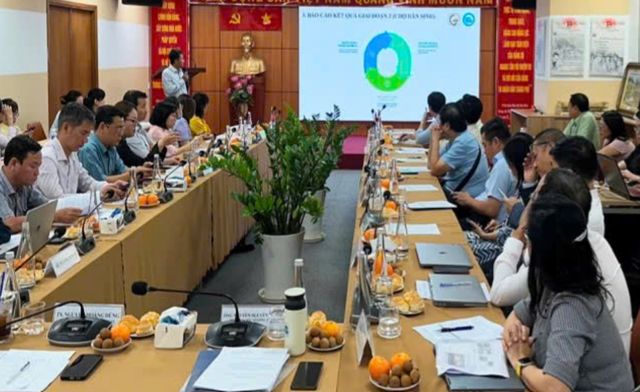
Ho Chi Minh City aims to transform traditional markets, boost tourism with market revitalization
Several traditional markets in Ho Chi Minh City are set to be transformed into supermarkets and specialized spaces, while iconic markets like Ben Thanh and Binh Tay will be preserved and promoted as cultural heritage sites to develop tourism.
The announcement was made during a seminar held on Tuesday by the municipal Department of Industry and Trade titled ‘Traditional Market System – Looking to the Future.’
The event aimed to seek effective measures for adapting the city’s market system in the wake of the COVID-19 pandemic and amid a digital economic transition.
Nguyen Nguyen Phuong, deputy director of the department, said that the city currently has 232 traditional markets.
However, these markets have faced growing difficulties since the COVID-19 pandemic, largely due to rising competition from supermarkets, shopping malls, and especially convenience store chains.
To address these challenges, the city is exploring comprehensive strategies to modernize traditional market models, improve service quality, and attract greater investment.
Associate Professor Hoang Cong Gia Khanh, principal of the University of Economics and Law in Ho Chi Minh City, noted that while markets remain a vital cultural and commercial feature for residents, consumer habits are evolving, particularly around food safety and product origin transparency.
Many markets are deteriorating in infrastructure, and ongoing issues such as unclear pricing, counterfeit goods, and substandard hygiene have driven customers away, Khanh said.
Experts at the seminar emphasized the need to redefine the function of these markets, upgrade service standards, and create investment-friendly policies to encourage participation from the private sector.

Experts attend a seminar on traditional market development in Ho Chi Minh City on April 22, 2025.
Tran Nhu Quynh, deputy head of the trade management division at the municipal department, told Tuoi Tre (Youth) newspaper that the department would soon propose detailed policies to the city’s administration to redefine the role and structure of traditional markets.
“Some underperforming markets may be converted into supermarkets, hybrid market-supermarket models, or even specialized markets,” she stated.
She also mentioned plans to support small vendors with tax incentives, reduced fees, and easier access to loans, as well as training programs to integrate digital tools and e-commerce platforms, potentially laying the groundwork for online markets.
Well-known markets like Ben Thanh, Binh Tay, and An Dong should be protected and promoted through tourism development and commercial initiatives, according to some experts.
These sites could play a critical role in shaping the city’s image while preserving its rich market heritage.
Several experts at the seminar called for revisions to Decree 60, which governs market management, including new classifications for market types.
Suggestions included worker-focused markets, sidewalk markets for low-income groups, specialized senior-friendly markets, and youth-oriented markets with integrated modern amenities.
Dao Ha Trung, chairman of the Ho Chi Minh City High Technology Association, underscored the importance of market identity.
He proposed a focus on local specialties, distinctive operational models, and infrastructure improvements, as well as extended opening hours to enhance competitiveness.
Tieu Bac - Nguyen Tri / Tuoi Tre News